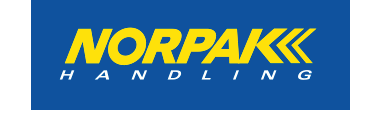 Four popular types of conveyor belts available from Norpak Handling
Four popular types of conveyor belts available from Norpak Handling
March 27, 2023 REDWIRE is news you can use from leading suppliers. Powered by FRASERS.
Posted by Norpak Handling Limited
Norpak Handling provides conveying products and complete turn-key systems to suit your requirements and solve your probl... Read more
Subscribe
Free REDWIRE e-newsletter

Norpak Handling carries various conveyor belts.
Norpak Handling Ltd. specializes in industrial material-handling solutions – not just conveyor systems, but also conveyor belts. These products are available in a wide variety of designs to work with various niches in different industries, and the two main categories are general-purpose belts and specialty belts, made of PVC, polyurethane, plastic, and metal.
Customers must select thoughtfully out of these different types of conveyor belts, ensuring they are optimized for their individual needs in their facilities or warehouses, to get the most of their conveyor systems.
Versatile and easy to use
It can be vital to use the appropriate conveyor belt for an application, as conveyor performance should be optimized to suit manufacturing needs and goals. PVC belts, for instance, are a popular choice from Norpak because they are lightweight, durable, extremely versatile, easy to use, and resistant to wear. In addition, PVC is one of the most sanitary belt materials, as it is non-absorbent and liquid-resistance. This is why manufacturing plants often use PVC belts to transport food, as well as pharmaceuticals, beauty products, and other sensitive products vulnerable to spilling.
Polyurethane belts, meanwhile, resist oil and abrasives substances, with elasticity that provides strong tear and impact resistance as well. Another polyurethane advantage is resistance to extreme weather conditions. Although more pricey than PVC belts are, polyurethane belts are popular in many industries.
Plastic belts are made from moulded thermoplastic pieces that are interlocked in a chain-like design, which boosts flexibility. They also add strength and durability with their solid surfaces, and they resist many kinds of harmful substances. Plastic belts are usually used to transport pallets or bulkier items in a wide variety of sectors.
Metal belts are usually made of metal wiring, woven into specific patterns that make up different belt types like diamond mesh, trapezoid mesh, ball mesh, and u-chain mesh. Different materials are available for specific needs, like stainless steel or carbon steel. A major benefit of metal conveyor belts is their high temperature, wear, and corrosion resistance, making them trusted in annealing applications and for moving glass items or machines.
To learn more, contact Norpak.
Share
Posted by Norpak Handling Limited
Norpak Handling provides conveying products and complete turn-key systems to suit your requirements and solve your probl... Read more
